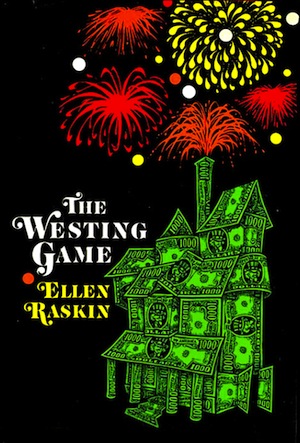Time.com recently asked 17 authors to recall when they were onc young readers, and talk about the young adult novels that left lasting impressions on them. Some of the writers polled, including Ann Brashares and James Patterson, have written popular YA series; others, like Gillian Flynn, admit to trying their hand at the genre with less success.
In recalling the funny, scary, touching books of their youth, their answers drew from an assortment of classics: “mind-expanding” adventures to Choose Your Own Adventure stories, surrealism to mystery, illegitimate princesses to precocious tween sleuths.
James Patterson took inspiration from J.M. Barrie’s classic tale of The Boy Who Wouldn’t Grow Up to write his Maximum Ride series:
As a kid, Peter Pan was one of a few books that I truly enjoyed. It’s got pirates, fairies, mermaids—what’s not to like?
On the same note, Barneys Creative Ambassador Simon Doonan stressed that every young reader should take a trip through the looking glass:
The most mind-expanding tome is still Alice’s Adventures in Wonderland by Lewis Carroll. Like Led Zeppelin or Jimi or Bowie, Alice should be a right of passage for every kid. The trippy narrative, interwoven with the creepy John Tenniel illustrations, is a cosmic blast of creativity which can unlock the imagination of even the most conventional kid.
Jesmyn Ward (Men We Reaped) waxed nostalgic about Robin McKinley’s memorable protagonist Aerin Firehair:
When I was around eight or so, I discovered The Hero and the Crown by Robin McKinley at my local book fair. I charmed one of my cousins into buying it for me, and then I devoured it. The heroine is an illegitimate princess who hunts dragons in an attempt to find some place for herself in her father’s kingdom; I loved the book because the heroine is tough, stubborn, and smart, and she takes on a world bent on making her less than she is. I empathized.
(Read our recent Pop Quiz at the End of the Universe with McKinley, in which she praises Diana Wynne Jones and explains how a broadsword beats a lightsaber and a phaser.)
John Irving (The Cider House Rules) celebrated Edward Gorey’s eerie illustrations:
The Doubtful Guest by Edward Gorey. Edward Gorey is the rare writer-artist whose work has a lasting effect on children and adults.
Though Forgive Me, Leonard Peacock author Matthew Quick can’t remember a specific Choose Your Own Adventure book, he recalls the fun of that particularly immersive style of storytelling:
Although I can’t recall the title of a single edition, I remember reading and loving many Choose Your Own Adventure novels when I was a kid. The series made you the protagonist and every so many pages you would come to a question. There were options listed and corresponding page numbers. I remember reading each path regardless of my choice, thumbing furiously forward and backward through the maze-like stories. In retrospect, I realize this active-reading process was perhaps my first lesson on story structure.
Not surprisingly, Gone Girl author Gillian Flynn called out Ellen Raskin’s beloved, twisty mystery The Westing Game—especially its spunky tween protagonist Turtle Wexler, who you knew never had to resort to being the Cool Girl:
The Westing Game completely charmed me as a kid: the clever mystery, the complex characters (especially the grownups—who knew they had lives too?) and the nasty, fantastic Tabitha Ruth Wexler. I still read it once a year.










